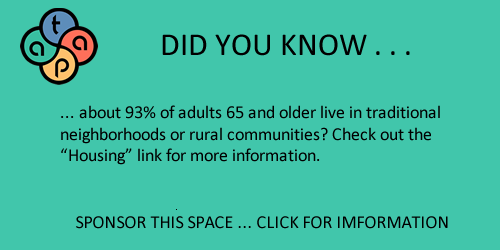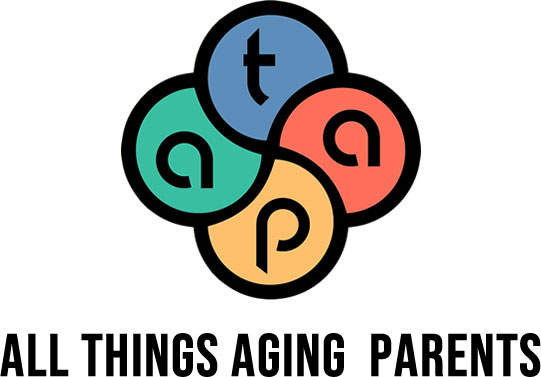There is a common stereotype that all older people become senile and forgetful. Like so many stereotypes this one is not true. It is true that there are some cognitive changes that happen as a normal part of aging, but only a small percentage of older adults develop cognitive disorders. In order to better understand these disorders, let’s look at normal aging and how that can affect our parents.
The term cognition means “the mental action or process of acquiring knowledge and understanding through thought, experience, and the senses.” One of the most basic functions of cognition is perception, which is closely tied to one’s senses. When a person suffers from hearing or vision loss their perception is affected, but not their intelligence. What is affected by decreased perception? Some attention and memory. An older person can sustain their attention as well as a younger person, but they slow down when they have to divide their attention or be selective as to what to pay attention to. (This is why distractions can make it hard for them to focus on what you are saying.)
“Working memory” is the area most affected by normal aging. Working memory is a cognitive system with a limited capacity that is responsible for temporarily holding information available for processing. Imagine it like this: it’s like a giant chalkboard in a math classroom that never gets erased. As time goes on there is less and less space to use for new calculations, and with new calculations, there is more and more irrelevant information. It works, it just takes a bit longer. (For techies it is like your computer’s RAM.) Short term memory (like remembering a phone number) is hardly affected at all by aging. Some parts of long term memory are more affected, but mostly the problems are with retrieving the information. General knowledge, autobiographical knowledge, and knowledge of how to perform a skill seem to remain constant.
Added all together, these can result in slower processing speed in an older person's mind. Older adults can generally process information as well as a younger person, given a little more time.


If your parent is having memory problems, don’t jump to the immediate conclusion that they have dementia. There are some common conditions that can cause memory loss. These include anxiety, dehydration, depression, infections (especially Urinary Tract Infections), medication side effects, poor nutrition, stress, substance abuse, or a thyroid imbalance. Memory lapses can be a symptom of a disease process, so be sure your parent mentions this to their doctor.
Mild Cognitive Impairment: Mild Cognitive Impairment (MCI) is the diagnosis of a noticeable decline in cognitive function that is measurable, but not severe enough to interfere with your parent's independent functioning. MCI is the stage between normal age-related changes and the more serious decline of dementia. It can involve problems with memory, language, disorientation, thinking, and judgment (impulsiveness or poor judgment). Adults suffering from MCI are at greater risk for developing some form of dementia.
Diagnosing MCI is difficult because tests or procedures are not definitive. Your parent's doctor will look at a complete medical history, get input from a family member or friend, perform an assessment of your parent's functioning, mental status, and mood, and perform some tests, then rely on their professional judgment. The FDA has not approved any drugs to treat MCI.
Brain Health and Fitness: There are lots of ways to maintain and strengthen a healthy brain.
- Participate in physical activities, especially aerobic activities (those that get your heart and sweat glands pumping) like walking, dancing, lifting weights, calisthenics, golfing, swimming
- Maintain your emotional well-being
- Control high blood pressure, cholesterol, diabetes, weight
- Remain engaged socially
- Develop or maintain spiritual practices like prayer, meditation, yoga, journaling
- Stay mentally active with puzzles and brainteasers (think crosswords, Sudoku, jigsaw puzzles, etc)
- Initiate new activities to enrich and give you a sense of purpose like college classes, hobby, volunteer work, new sport
- Eat brain healthy foods like dark-skinned fruits and vegetables (blueberries, red grapes, spinach, broccoli, beets), cold water fish (halibut, salmon, tuna), and some nuts (almonds, pecans, walnuts)
- Reduce calorie consumption and follow a low-fat, low-cholesterol diet
- Limit alcohol intake
- Limit smoking
- Prevent head trauma by using a seat belt, a helmet when needed, and fall-proofing your home
According to VerywellMind.com, brain fitness has basic principles: variety and curiosity. When anything you do becomes second nature, you need to make a change. If you can do the crossword puzzle in your sleep, it's time for you to move on to a new challenge in order to get the best workout for your brain. Curiosity about the world around you, how it works and how you can understand it will keep your brain working fast and efficiently. They recommend 10 ways to attain your quest for mental fitness: play games, meditation, eating healthy foods, tell good stories, turn off your television, exercise your body, read something different, learn a new skill, make simple changes to your routine, and train your brain through memory, visualization, and reasoning. This list may appeal to you because it incorporates some very creative ideas.
Resources:



















